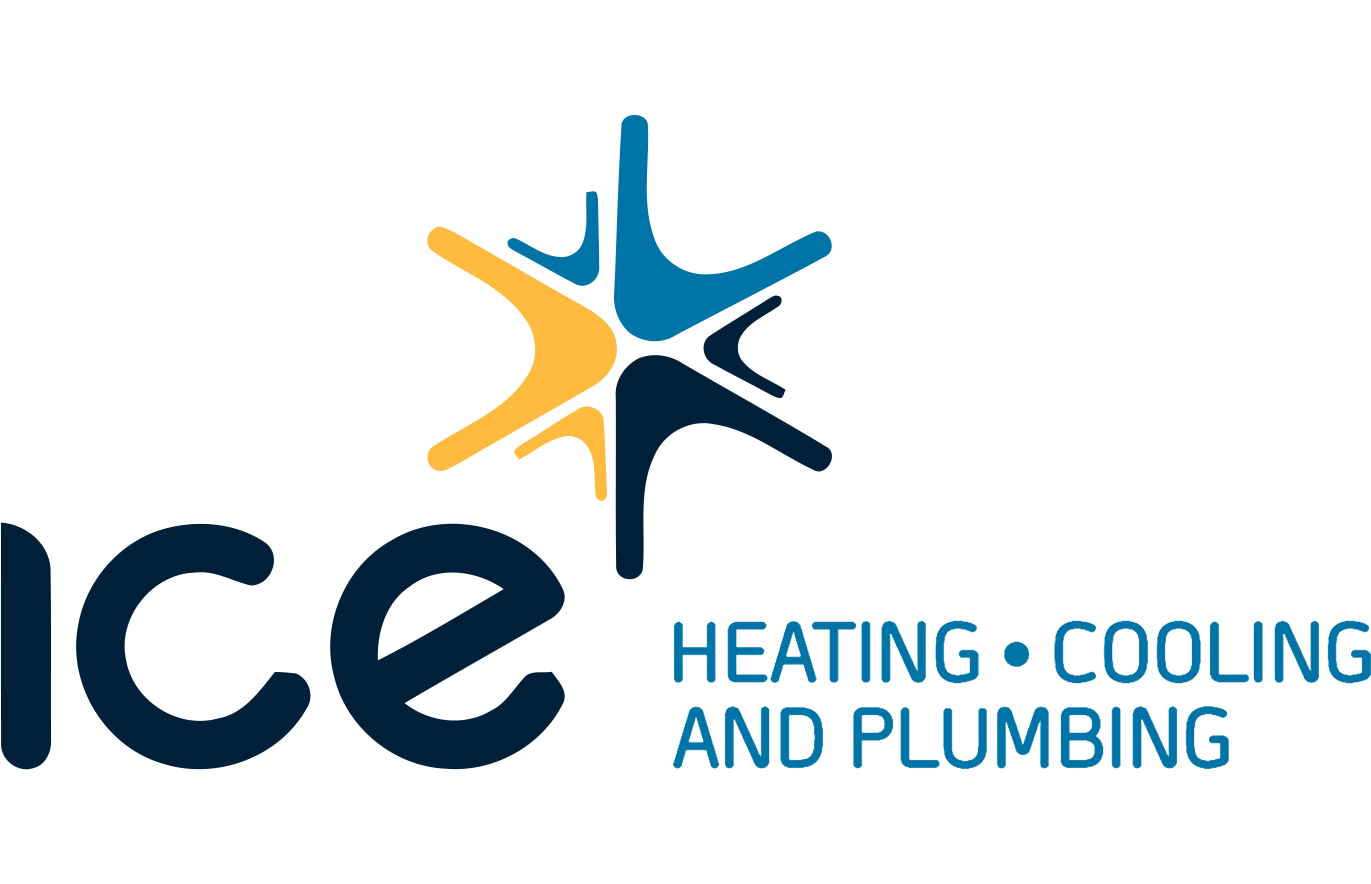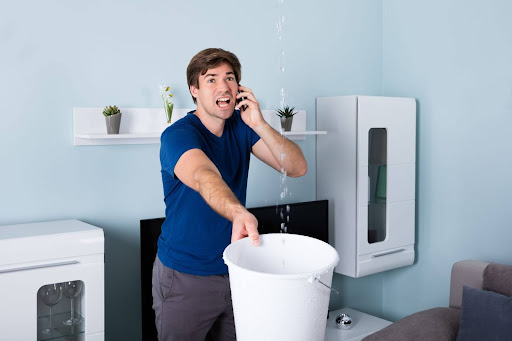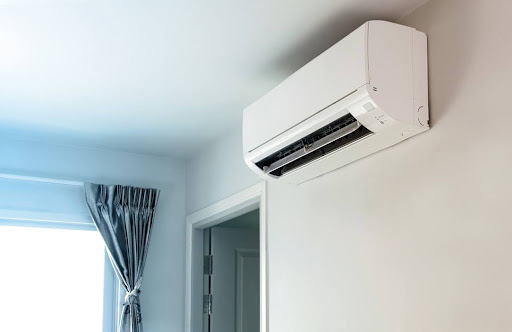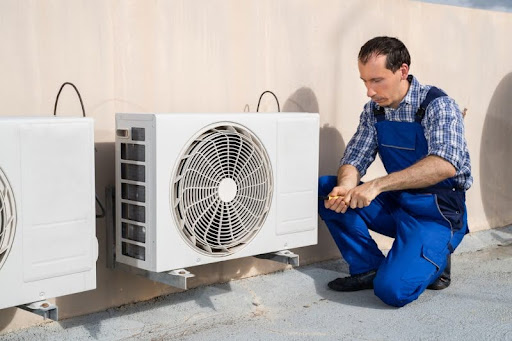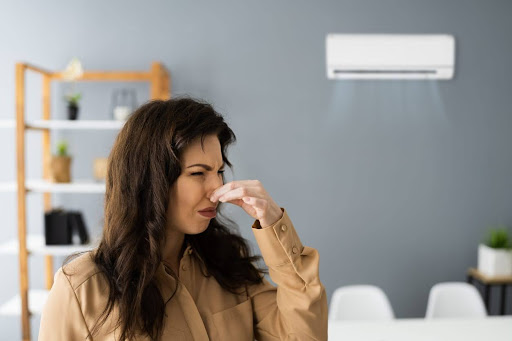If you’ve noticed water dripping from your AC indoor unit, you’re not alone. This common issue can stem from several causes, including clogged drain lines, improper installation, or a refrigerant leak. Understanding the source of the problem is key to resolving it promptly and preventing further damage. In this guide, we’ll delve into the potential reasons behind the water leakage and provide actionable steps to rectify the issue.
Possible Causes of Water Dropping from AC
1. AC Clogged Condensate Drain Line
A clogged condensate drain line is one of the most common reasons for water dripping from an AC indoor unit. Over time, dirt, debris, mold, and algae can accumulate in the drain line, obstructing the flow of water. This blockage may cause water to back up and leak from the indoor unit. Regular maintenance and cleaning can help prevent this issue.
2. Dirty AC Air Filters
Dirty air filters can restrict the airflow in your HVAC system, leading to inefficient cooling and increased condensation on the evaporator coil. When the coil becomes too cold, it can freeze and eventually thaw, resulting in water leakage from the indoor unit. Changing the air filters regularly can help prevent this issue.
3. Low Refrigerant Levels in AC System
If the refrigerant levels in your AC system are low, it can cause the evaporator coil to become too cold. As a result, the coil may freeze, and once it thaws, water can leak from the indoor unit. Low refrigerant levels may indicate a leak in the system, which requires professional attention to fix the leak and recharge the refrigerant.
4. Improperly Installed AC Unit
If your AC unit is not installed correctly, it may have an incorrect slope or an insufficiently sized drain line. These installation errors can prevent proper drainage and result in water dripping from the indoor unit. It is important to ensure that your AC unit is installed by a qualified technician to avoid such issues.
5. Frozen Evaporator AC Coil
A frozen evaporator coil can occur due to various reasons, such as restricted airflow, low refrigerant levels, or a malfunctioning blower motor. When the coil freezes and then thaws, water can drip from the indoor unit. Identifying and addressing the underlying cause of the freezing issue is necessary to prevent future water leakage.
6. Rusted or Damaged AC Drain Pan
If the drain pan in your AC indoor unit is rusted or damaged, it may not effectively collect the condensation, leading to water leakage. Regular maintenance and inspection can help identify any issues with the drain pan and ensure its proper functioning.
7. Excessive Humidity in Atmosphere
In environments with high humidity levels, the AC system may produce more condensation than usual. If the drainage system is not equipped to handle the excess moisture, it can result in water leaks from the indoor unit. Implementing strategies to reduce humidity, such as using dehumidifiers or improving ventilation, can help alleviate this issue.
8. Inadequate AC Insulation
If the ductwork or insulation around your AC unit is inadequate or damaged, it can cause condensation to form on the exterior of the ducts or on nearby surfaces. This excess moisture can then drip down and appear as water leakage from the indoor unit. Ensuring proper insulation and sealing of ductwork can help prevent this issue.
Can You Use Your AC When Water Is Leaking?
If you notice water dripping from your AC indoor unit, it is generally recommended to turn off your air conditioning system until the issue is resolved. Continuing to use your AC while it is leaking water can cause further damage to the system, as well as potentially lead to electrical hazards. It’s best to call a professional HVAC technician to diagnose and fix the problem before using your AC again.
AC Water Dripping Prevention and Solutions
Regular AC Maintenance and Cleaning
Regular maintenance and cleaning of your HVAC system can help prevent water leakage from your AC indoor unit. Schedule professional maintenance inspections at least once a year to ensure that all components are clean and functioning correctly. This includes cleaning the evaporator coil, checking the drain line for blockages, and inspecting the drain pan for any damage.
Unclogging the AC Condensate Drain Line
If the condensate drain line is clogged, it needs to be unclogged to restore proper drainage. This can be done by using a wet-dry vacuum or by using specialized tools designed for this purpose. If you’re unsure about performing this task yourself, it’s best to seek the assistance of a professional HVAC technician.
Changing AC Air Filters
Regularly changing air filters in your HVAC system is crucial for maintaining proper airflow and preventing moisture build-up. Follow the manufacturer’s recommendations for filter replacement intervals, which are typically every 1-3 months. This simple maintenance task can help prevent water leakage and improve the overall efficiency of your AC system.
Checking AC Refrigerant Levels
If you suspect that low refrigerant levels are causing water leakage from your AC indoor unit, it’s essential to have a professional HVAC technician inspect and recharge the system. They will be able to identify any leaks and ensure that the refrigerant levels are at the appropriate level for optimal cooling performance.
Ensuring Proper AC Installation
If you are installing a new AC unit or replacing an existing one, it is crucial to have it installed by a qualified technician. Proper installation ensures that the unit is correctly sized, leveled, and equipped with the necessary drainage components to prevent water leakage. Hiring a professional will help avoid installation errors that can lead to future issues.
Thawing a Frozen AC Evaporator Coil
If you notice a frozen evaporator coil in your AC system, it’s important to turn off the air conditioner and allow the coil to thaw naturally. Do not attempt to speed up the process by using heat sources or tools, as this can potentially damage the coil. Once the coil is completely thawed, you can then address the underlying cause of the freezing issue, such as restricted airflow or low refrigerant levels.
Reducing Humidity
If excessive humidity is causing water leakage from your AC indoor unit, there are several measures you can take to reduce humidity levels in your home. Using dehumidifiers, ensuring proper ventilation, and sealing any air leaks can all help control humidity and minimize condensation formation in your HVAC system.
Improving AC Insulation
If inadequate insulation is contributing to water leakage from your AC indoor unit, it’s important to address the insulation issues. Insulating ductwork and sealing any gaps or leaks can help prevent moisture from forming on the exterior of the ducts or nearby surfaces. This can help eliminate water leakage and improve the overall efficiency of your HVAC system.
Say Goodbye to a Leaking Air Conditioning System
Water dripping from your AC indoor unit should not be ignored, as it can indicate underlying issues with your HVAC system. By understanding the possible causes and implementing prevention and solutions, you can say goodbye to a leaking air conditioning system. Remember to schedule regular maintenance, clean or unclog the condensate drain line, change air filters, check refrigerant levels, ensure proper installation, thaw frozen evaporator coils, reduce humidity, and improve insulation. If you are unsure about any of these tasks, it’s best to consult a professional HVAC technician who can diagnose and resolve the issue for you.
